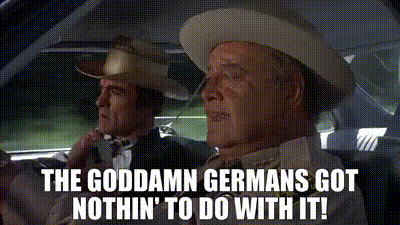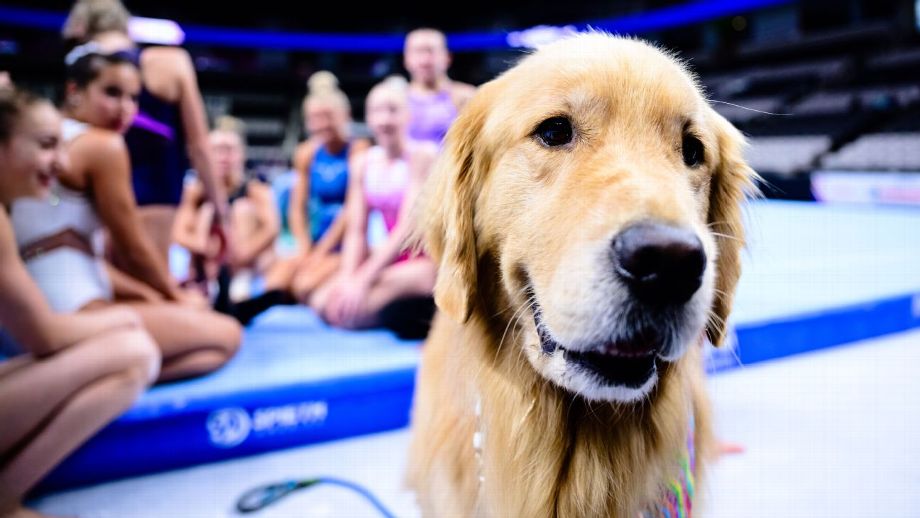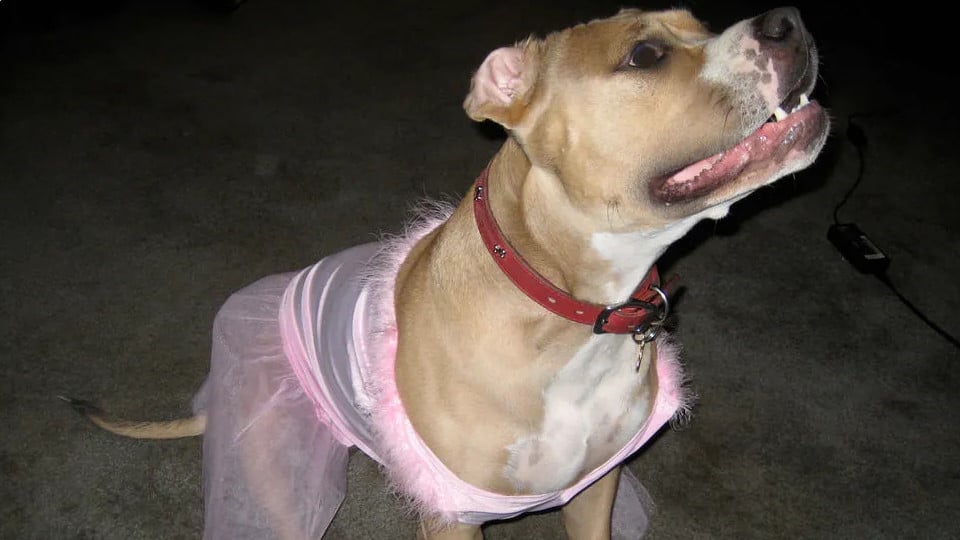One of the biggest draws at this year's Olympic trials is Beacon, the first therapy dog to work for USA Gymnastics. And his schedule is jam-packed.

www.espn.com
A day in the life of Beacon, the therapy dog at U.S. Olympic gymnastics trials
It's just past 10 on Friday night and the Target Center, packed to near capacity an hour ago, falls quiet as one of USA Gymnastics' busiest volunteers makes his way toward an exit. Beacon, a 4-year-old golden retriever, is the organization's first therapy dog and its only part-time, four-legged staff member. He wears a credential, travels to important meets such as the Olympic trials and holds the title of USAG's "Goodest Boy."
Tonight, Beacon is wiped. He has spent a long day comforting athletes and coaches, calming members of the women's national team before their first night of competition at the Olympic trials, and providing them a belly to rub and gentle face licks after a heart-wrenching meet that saw injuries to two of the country's top prospects.
"He's tired now," Tracey Callahan Molnar, Beacon's handler and a former gymnast and coach who's never more than a 5-foot leash away, said. "I think we did important work. It was a rough night for some of the gymnasts, and I think Beacon helped celebrate the good stuff and be there and give support for the challenges."
Those started before the meet did. Shilese Jones, a two-time world champion who was considered a lock to make the team, was injured during vault warmups. After landing a double-twisting Yurchenko, she grabbed her left knee and was helped out of the arena by her coach, Sarah Korngold, and national team technical lead Chellsie Memmel. She returned to compete on uneven bars and earned the highest score of the night, but scratched from the other events and her status on Sunday is uncertain.
Not long after, Kayla DiCello, a 2021 alternate who has looked as promising as anyone recently, led off the meet on vault. She landed awkwardly, sat down on the mat and shook her head. She left the floor in a wheelchair and in tears and later withdrew from the meet with an Achilles injury.
Around the arena, DiCello's friends and competitors were shaken. Her roommate here in Minneapolis and one of her best friends, reigning Olympic all-around champion Suni Lee, cried as she lined up to take her first vault. It was a devastating start to an important night for these women who are competing for one of five spots on Team USA.
After the meet, Beacon went to work. He and Callahan Molnar walked out onto the arena floor and spent about 40 minutes with the gymnasts and their coaches, Lee included, who stroked his back, nuzzled his soft fur and, when he could convince them to, rubbed his belly.
"I watch the women and if they're animated when they see him, I'll walk toward them," Callahan Molnar said. "Tonight, some called him over or came to him on their own." Not every gymnast grew up around dogs, so she is mindful that interacting with Beacon is a new experience for some. Sometimes Beacon directs Callahan Molnar's attention toward someone with a gentle tug of his leash. He's drawn to two things: hearing his name and an innate sense of when someone needs him.
"He will turn on a dime without seeing who it is," Callahan Molnar said. "He picks up on the stress and will pull to that person immediately." She says therapy dogs like Beacon act as a sort of emotional sponge. "They absorb the stress of the people they're relieving the stress off of," she said. "So even though he might be lying still for two hours, he's wiped out afterwards."
Which is why right now, Beacon needs a good night's sleep and his stuffy. He has put in a 15-hour day that started with Callahan Molnar waking him at 7. Here's a peek into one day in the life of USAG's most popular employee.
.
.
.
continued
.
.
.
After the competitions on Saturday and Sunday, the men's and women's teams will be named, and Beacon will be there for those who need him. Once the selection committee delivers the news of who was selected, he and Callahan Molnar and one other therapy dog team will be available to athletes who are not named to Team USA, and their families. She spent the past week selecting the perfect other pair to accompany them in this duty. "It's a sensitive situation," she said. "Their job those nights is a big responsibility."












